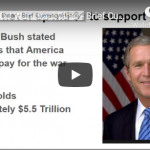9-17-2015 Articles
18
Sep
Israel’s Shekel Among Worst Performers Ahead of Fed Decision
The shekel was one of the worst performers in the world on Thursdaybefore Federal Reserve policy makers decided whether to raise U.S. interest rates for the first time in almost a decade.
Israel’s currency depreciated 0.7 percent, set for its steepest loss in more than three weeks and the third-largest retreat among 31 global peers tracked by Bloomberg, to 3.885 per U.S. dollar at 4:49 p.m. in Tel Aviv.
“The shekel got a boost after yesterday’s report by the International Monetary Fund suggesting there is no need for a rate cut and today we see people exiting their positions and buying dollars,” said Shay Uliel, head of FX trading at Excellence Nessuah Broker Services Ltd. “We’re all just waiting for the Fed decision.”
The dollar strengthened against the yen after initial jobless claims in the U.S. declined last week to the lowest level in two months, according to government data. Earlier on Thursday, Israel’s economy grew at the slowest pace in six years last quarter, the Central Bureau of Statistics said.
The shekel ended August with the largest monthly slump in a year as Bank of Israel Governor Karnit Flug hinted that the combination of lagging consumer prices, together with slowing growth at home and abroad, could provoke policy makers to drag interest rates below zero. The shekel is the second-best performer this year against a basket of 31 major currencies tracked by Bloomberg.
CLSA: The Emerging Market Slowdown Is About to Hit the Developed World
Emerging markets have been a huge component of global growth.
Turmoil in emerging markets has so far been relatively contained.
Unfortunately, CLSA, an institutional brokerage arm of China’s Citic Securities, thinks that is about to change.
According to a note sent out this morning, CLSA analyst Christopher Wood says that the market action in emerging market countries “is the lead indicator of the slowdown that will hit the developed world.”
The crux of Wood’s argument is that emerging markets used to account for a massive portion of the world’s economic growth, lending support to developed economies coming out of the financial crisis. Lately, their growth has been significantly lagging, and we could be in for a period of global stagnation.
… to return to the argument that the developed world is not “decoupled” from the turmoil in emerging markets, the obvious point is that emerging markets led by China have accounted for a significant proportion of the incremental growth seen in the world economy since the beginning of 2009.
Wood points out that emerging markets have accounted for 75 percent of the increase in world nominal GDP in U.S. dollar terms since 2009. Lose that growth, and developed markets would really have to pick up the pace to keep the world on track.
And indeed, today is a big one for the emerging world, because of a possible interest rate hike from the Federal Reserve, which could further crimp their economies’ growth. Investors have been expressing concern throughout the year, with outflows from emerging market funds hitting levels not seen since 2008.
Some are just beginning to figure out there are manufacturing sector troubles. The late-to-the party quote of the day come from Bloomberg who just now realized “There may very well be something wrong with the manufacturing sector.”
The Euro Is Weaker Than You Thought, and the Reason is China
The ECB’s updated currency weightings show the unmistakable shift in Europe’s trade profile
Swiss National Bank Says Franc Still Overvalued
The Swiss National Bank kept interest rates at record lows and signaled the recent depreciation of the franc hasn’t diminished its willingness to intervene in currency markets if needed.
In Bond-Market Irony, Inflation Is Lower Now Than When Fed Eased
Gold Near Highs In Currencies Globally – Terrorism, War and Currency Devaluations
yeah-hay-hay…
Deutsche Bank posts announcement on closure of some Russia ops
Germany’s Deutsche Bank (DBKGn.DE) said in a statement published on the website for its Russian business on Thursday that it would close its corporate banking services and securities departments in Russia.
The bank’s statement was dated Sept. 18. Only a summary of the statement, in Russian, was visible on the website, and it was not possible to open the statement itself.
A Russia-based bank spokesman declined to comment on whether Deutsche planned to close any of its departments in Russia.
He said the bank’s Russian arm had not issued any statements on this issue. A Frankfurt-based media representative for Deutsche Bank was not immediately available.
But a source close to the bank said that it would announce an optimization of its business in Russia from Friday.
oh boy…
Who’s the Better Keynesian? Schaeuble Says He’s the One
Germany Defies ECB by Fortifying National Bank Control Rules
Germany is resisting the European Central Bank’s drive to smooth out Europe’s “supervisory patchwork,” retaining the right to make rules on how banks are managed.
In an amendment to the nation’s banking act, the Finance Ministry in Berlin will be able to issue rules on banks’ recovery plans, risk management and internal decisions under a bill implementing European Union rules for winding down failing banks. The ECB criticized a previous draft for fostering fragmentation and undermining its authority. The tweaked version seen by Bloomberg makes only minor concessions, granting the ECB the right to be heard in some cases.
these mini rallies in #Japanese and #Chinese stock markets are just temporary pauses before further declines. #SHCOMP #Nikkei225
China Liquidated A Record $83 Billion In Treasurys In July
Submitted by Tyler Durden on 09/16/2015 – 16:38
According to TIC, China, between its mainland and Euroclear holdings, sold a record $83 billion in Treasurys in the month of July. It also means that China has liquidated a whopping $184 billion notional in US Treasurys in 2015. Finally, and here it the punchline: the sale of ~$83 billion took place in July. This is before China announced its devaluation on August 11 and before, as we also first reported, it sold another $100 billion in Treasurys in August.
China industrial output rises 6.1% in August
China’s value-added industrial output expanded 6.1 per cent year on year in August, up from 6 per cent in July, the National Bureau of Statistics said on Sunday.
China’s retail sales grew 10.8 per cent year on year to 2.49 trillion yuan ($390.89 billion) in August, higher than forecasts.
Beijing has set its official growth target for 2015 at 7 per cent.
Fixed asset investment, a measure of government spending on infrastructure, expanded 10.9 per cent on-year in the January-August period.
China’s economy expanded 7.3 per cent in 2014.
After 30 years of unprecedented economic expansion during which nearly 500 million people were raised out of poverty, China’s growth model is beginning to show signs of stress.
Chinese group buys Turkish port for $940 mn
A joint venture set up by a Chinese investor consortium has bought a 65 per cent stake inTurkey’s third largest container terminal for $940 million, the company announced Thursday.
China Merchants teamed up with COSCO Pacific Ltd. and a subsidiary of China Investment Corp. to buy the stake in the Turkish company that now effectively gives the Chinese group the control over its port facility.
A report filed by China COSCO Holdings to the Shanghai Stock Exchange said the investors purchased Kumport Terminal, located on the northwest coast of the Marmara Sea on the European side of Istanbul.
China firms in US high-speed rail deal
A consortium of Chinese rail firms has teamed up with private US company XpressWest to build a high-speed rail line between Las Vegas and Los Angeles.
Warren Buffett and Bill Gates like railroads, and you should too http://on.mktw.net/1QjIZcf
China-Russia Oct. expo aimed at unlocking billions of dollars in trade
A Chinese province is set to host a China-Russia expo next month, intended to boost trade, finance and tourism between the two neighbours.
Top Chinese and Russian officials and industrialists will gather at Harbin to discuss investment cooperation from October 12-16.
This is the 2nd China-Russia Exposition. Contracts worth $3.15 billion were signed at the first China-Russia Expo.
Under its so-called “One Belt, One Road” initiative, China aims to create a modern trade route known as the Silk Road Economic Belt and the 21st Century Maritime Silk Road.
Projects under the plan include a network of railways, highways, oil and gas pipelines, power grids, Internet networks, maritime and other infrastructure links across central, west and south Asia to as far as Greece, Russia and Oman, increasing China’s connections to Europe and Africa.
China’s President Xi Jinping said in March that he hoped China’s annual trade with the countries involved in the “One Belt, One Road” initiative would surpass $2.5 trillion in a decade.
The expo will also attract businessmen from other countries, including Germany, the Netherlands, Belgium, the Republic of Korea, India and Singapore.
Northeast China’s Heilongjiang Province is planning to increase investment in Russia by $1 billion by the end of 2015, and $2 billion by 2020.
The Chinese province, which borders Russia, plans to boost its trade volume to $26 billion by 2015, and $52 billion by 2020.
Goldman Sees 15 Years of Weak Crude as $20 U.S Oil Looms
A glut of crude may keep oil prices low for the next 15 years, according to Goldman Sachs Group Inc.
There’s less than a 50 percent chance that prices will drop to $20 a barrel, most likely when refineries shut in October or March for maintenance, Jeffrey Currie, head of commodities research at the bank, said in an interview in Lake Louise, Alberta. Goldman’s long-term forecast for crude is at $50 a barrel, he said.
Goldman cut its crude forecasts earlier this month, saying the global surplus of oil is bigger than it previously thought and that failure to reduce production fast enough may require prices to fall near $20 a barrel to clear the glut. Prices may touch that level when stockpiles are filled to capacity, forcing producers in some areas to cut output, Currie saidWednesday.
“When we think of the longer term oil price, yes we put it at $50 a barrel,” he said. “However the risks are to the downside given what’s happening in the other commodity markets and the macro markets more broadly.”
$50 Oil Puts Saudi Budget Deficit Beyond Reach of Spending Cuts
The slump in oil prices has spurred Saudi Arabia’s government to search for savings, contemplate project delays and sell bonds for the first time since 2007. It won’t be enough to prevent the kingdom’s biggest deficit in decades.
“The revenue drop is so severe that it’s unrealistic to expect spending cuts to have any meaningful impact on the deficit in the near term,” said Simon Williams, HSBC’s chief economist for central and eastern Europe, the Middle East and North Africa. The longer oil prices stay weak, “the greater the pressure on the authorities,” he said in an e-mail.
House panel votes to lift 40-year-old US ban on oil exports
Republican-led House panel votes to lift crude oil export ban despite White House opposition
How Current Monetary Policy May Damage Economies
12:04 AM CDT September 17, 2015
“The Gloom, Boom & Doom” Editor and Publisher Marc Faber discusses how the Federal Reserve damaged economies and current monetary policy’s impact. He speaks on Bloomberg’s “Asia Edge.”
Inside Janet Yellen’s Brain At 4am (Part II)
Submitted by Tyler Durden on 09/17/2015 – 09:50

Today, much of the world turns its lonely eyes to the Fed and its chieftain. The Fed has as much as promised to make the blind see and the lame walk. It claims that it – and it alone – is capable of improving the U.S. economy and, by extension, the world economy.People will earn more money. They will live better. And they will have less to fear from financial calamities, such as those that happened before the Fed was set up in 1913. In the popular mind – if there is such a thing – it is further believed that the Fed “won’t allow” a major bear market, because “it would be bad for the economy.” The Fed rules the entire universe of commerce, finance, and investment. Janet Yellen rules the Fed. But who rules Janet Yellen?
The Real Reasons Why The Fed Will Hike Interest Rates
Submitted by Tyler Durden on 09/16/2015 – 22:30

With a complex and disaster-prone system of interdependence causing social strife and chaos, why not just simplify everything with a global currency and perhaps even global governance? The elites will squeeze the collapse for all it’s worth if they can, and a Fed rate hike may be exactly what they need to begin the final descent.
Go past the title – he knows what is going on
The Hype Surrounding Today’s Federal Reserve’s Interest Rate Decision is Way Overblown
This Is The Satellite Image That Supposedly Proves The Presence Of Russian “Troops And Aircraft” In Syria
US, Israel Quietly Holding Talks On Post-Iran Deal Payoff
The goal Is to announce a deal during Netanyahu’s November visit.
Throughout the weeks since the P5+1 nuclear deal with Iran, Israel has been loudly campaigning against the deal, with Israeli Lobby groups like AIPAC putting tens of millions of dollars into a failed campaign to kill the pact.
At the same time, it’s been understood throughout that there would eventually be a multi-billion dollar payoff by the US government in the form of extra military aid to Israel, meant to get them to at least calm down a little about the pact.
Despite Israel continuing to rail about the deal, and despite the deal being safe in Congress without Israeli acquiescence, the US and Israel are said to be engaged in “low-profile” talks on terms of the “compensation” deal for them, with an eye toward getting the deal ready to announce by November’s state visit for Netanyahu.
Israeli officials have suggested these “unofficial” talks have been ongoing for a couple of weeks now, and all indications are that it will still be a multi-billion dollar package of weapons on top of the billions of dollars annually the US already gives Israel.
The timing of the talks was initially quite controversial in Israel, with the military wanting a deal quick, and fearing that if Israel waited too long the White House wouldn’t need them and wouldn’t pay up. Ultimately, it seems the White House didn’t need them, but is still paying up anyhow.


















